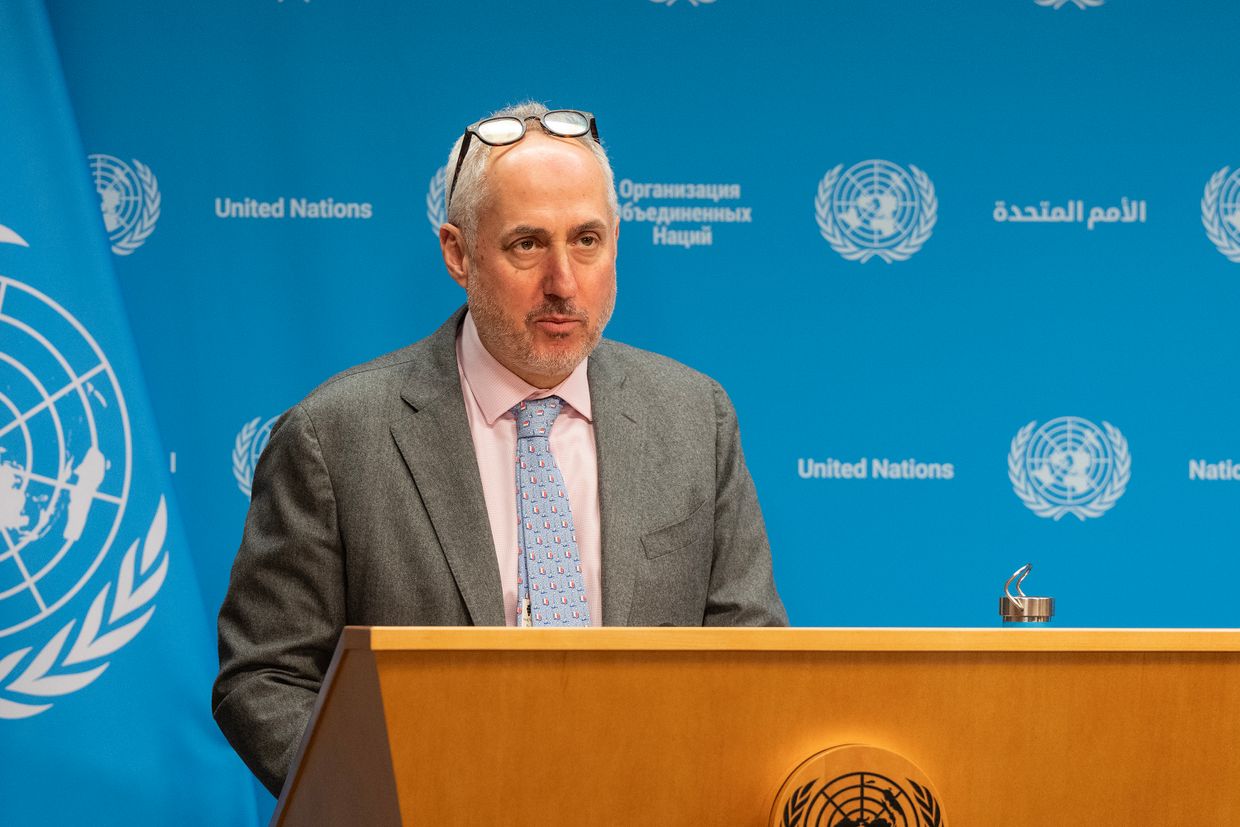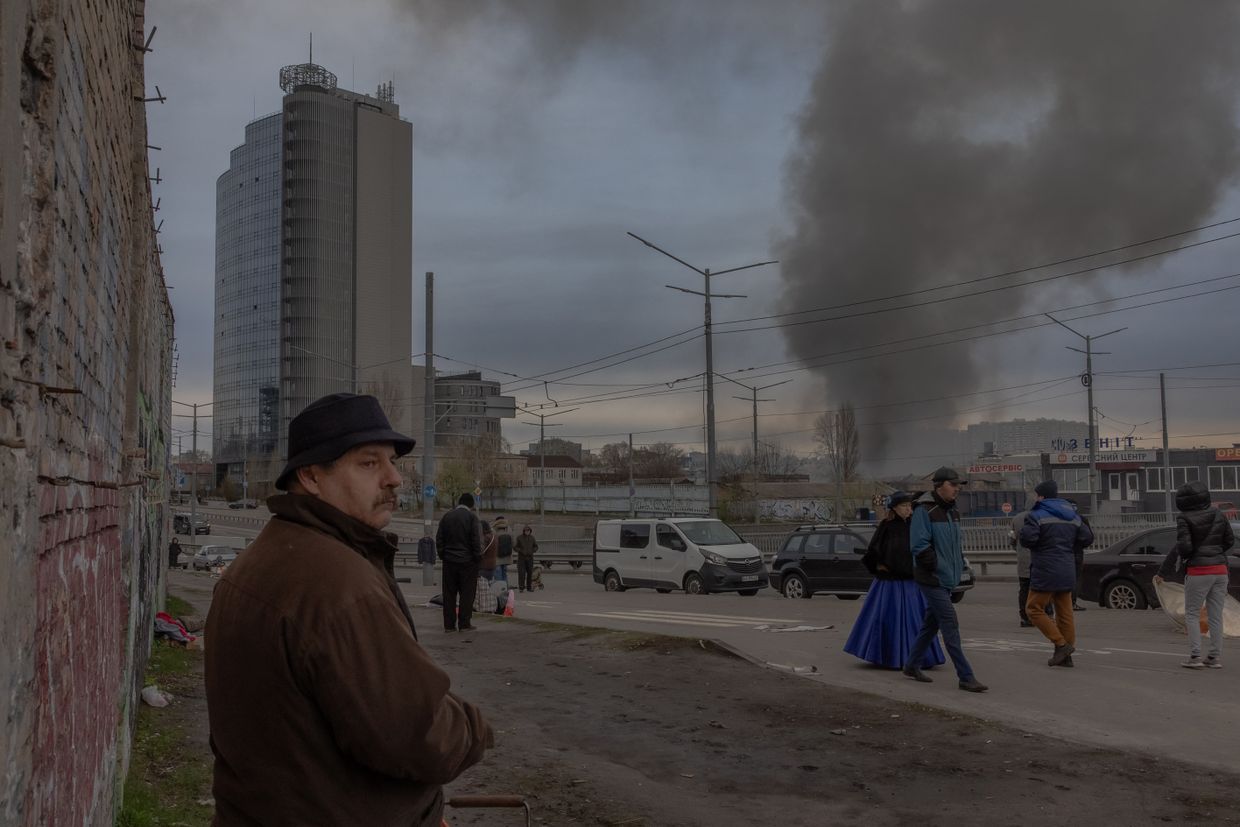"We have a plan B and a plan C. But our focus is plan A, the essence of which is to get everyone's support" for Ukraine's accession, EU foreign policy chief Kaja Kallas said.
"(T)he presence at the Victory Parade of a country that bombs cities, hospitals, and daycares, and which has caused the deaths and injuries of over a million people over three years, is a shame," Polish Prime Minister Donald Tusk said.
"According to the participants of the performances, their goal is to remind the civilized world of the barbaric actions of Moscow, which for many years and decades has systematically violated international law," a source in Ukraine’s military intelligence agency (HUR) told the Kyiv Independent.
"I have great hope that an agreement for a ceasefire in Ukraine will be reached this weekend," German Chancellor Friedrich Merz said on May 9, shortly before traveling to Kyiv alongside the leaders of France, Poland, and the U.K.
U.K. Prime Minister Keir Starmer, French President Emmanuel Macron, German Chancellor Friedrich Merz, and Polish Prime Minister Donald Tusk will arrive in Kyiv early on May 10.
The United States embassy in Kyiv on May 9 issued a warning that Russia could launch "a potentially significant" attack in the coming days, despite Putin's self-declared Victory Day "truce."
The sanctioned oil tankers have transported over $24 billion in cargo since 2024, according to Downing Street. The U.K. has now sanctioned more shadow fleet vessels than any other country.
The sanctions list includes 58 individuals and 74 companies, with 67 Russian enterprises related to military technology.
Washington and its partners are considering additional sanctions if the parties do not observe a ceasefire, with political and technical negotiations between Europe and the U.S. intensifying since last week, Reuters' source said.
Despite the Kremlin's announcement of a May 8–11 truce, heavy fighting continued in multiple regions throughout the front line.
Putin has done in Russia everything that Luiz Inacio Lula da Silva had been against in Brazil.
Russia, Ukraine continued in hostilities despite Easter truce, UN says

Russia's declared Easter truce failed to hold as both sides continued fighting, Stephane Dujarric, a spokesperson for the U.N. secretary-general, said on April 22 during a press briefing.
Russia was the first to declare an Easter ceasefire starting at 6 p.m. local time on April 19 and ending at midnight on April 21. President Volodymyr Zelensky accused Russia of nearly 3,000 ceasefire breaches during that period.
"Both sides continued to fight. Once again, we call to end this war in line with relevant U.N. resolutions, international law, and the territorial integrity of Ukraine," Dujarric said.
Moscow also accused Kyiv of violating the truce. Ukraine has said it would carry out military actions only in a "symmetrical" response to Russian attacks during the ceasefire.
Following the declaration of the Easter truce, Zelensky proposed a joint 30-day ceasefire on long-range missile and drone strikes against civilian infrastructure. While claiming openness to "peace initiatives," Russia has not yet agreed to impose the ban.
Zelensky said on April 21 that he was still waiting for an answer regarding the broader ceasefire.
Kyiv has voiced skepticism about Russian President Vladimir Putin's Easter truce proposal, citing Russia's repeated violations of various ceasefire agreements in the past. Most recently, Ukraine said that Russian forces continued attacking Ukrainian energy facilities despite claiming to order a pause between March 18 and April 17.
U.S. President Donald Trump has also ramped up pressure on Ukraine and Russia to secure a ceasefire in the coming days. After threatening on April 18 to pull U.S. support from the peace process altogether, Trump told reporters on April 21 that there is a "very good chance" of a ceasefire agreement soon.
Ukrainian representatives will meet with officials from the U.S., U.K., and France for another round of peace talks in London on April 23.
The London negotiations are a follow-up to the recent April 17 talks in Paris, where senior members of the Trump administration first presented the U.S. ceasefire proposal to Ukrainian and European officials.
Moscow previously rejected a full 30-day truce agreed upon by Kyiv and Washington on March 11 in Jeddah.

Most Popular

After 3 years of full-scale war in Ukraine, Europe announces plan to ban all Russian gas imports

Ukraine, Europe's ceasefire proposal includes US security guarantees, no recognition of Crimea, Reuters reports

Journalist Roshchyna's body missing organs after Russian captivity, investigation says

After Russia's deadly attack on Kyiv, Vance reposts denunciation of Zelensky

Ukrainian sea drone downs Russian fighter jet in 'world-first' strike, intelligence says
Editors' Picks

How medics of Ukraine’s 3rd Assault Brigade deal with horrors of drone warfare

As Russia trains abducted children for war, Ukraine fights uphill battle to bring them home

'I just hate the Russians' — Kyiv district recovers from drone strike as ceasefire remains elusive


